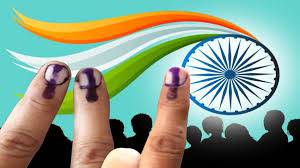The practice of lobbying has been a long-standing part of the political landscape, with groups of individuals attempting to influence government decisions for centuries. In recent times, however, the sheer scale and scope of lobbying has given rise to concerns about its potential negative consequences on our democracy.
At its core, lobbying is simply an attempt to gain access to politicians and policy-makers and it's aimed at swaying their decisions. Lobbyists achieve this using various tactics, such as providing financial support to political campaigns, offering incentives to politicians, or providing expertise on issues that are relevant to the decision-making process.
The problem with lobbying is that it often creates an imbalance in the political atmosphere by giving a disproportionate amount of power to certain groups or individuals. Wealthy and powerful groups can hire lobbyists to influence policy decisions in their favor, giving them an unfair advantage over less influential groups who may not have the same resources to make their voices heard. This can lead to policies that favor large corporations and wealthy individuals while neglecting the needs and concerns of ordinary citizens.
While it’s important to note that not all lobbying is inherently bad, one of the potential negative consequences of lobbying is corruption. When individuals or groups with vested interests in policy decisions are able to influence those decisions, there is a risk that they will use their power to enrich themselves or their allies, rather than acting in the public interest. The fact that lobbying remains largely unregulated and opaque only adds to this concern. This ultimately undermines the whole concept of democracy by eroding public trust in the government and creating a system in which politicians are seen as indebted to their donors rather than the people they were elected to serve.
The only solution to address all these concerns is to ensure transparency and accountability in the entire lobbying process. This includes measures like requiring lobbyists to register and disclose their activities and financial contributions, limiting the amount of money that can be donated to political campaigns, and providing the public with access to information about the legislative decision-making process.
As we reflect on the impact of lobbying on our democracy, we must ask ourselves these hard-hitting questions: Are lobbyists a threat to fair and accountable decision-making? How can we ensure that elected officials prioritize the needs of the people over the interests of lobbyists? And most importantly, how long are we willing to tolerate a system where self-serving groups have an overwhelming influence over those in power?





